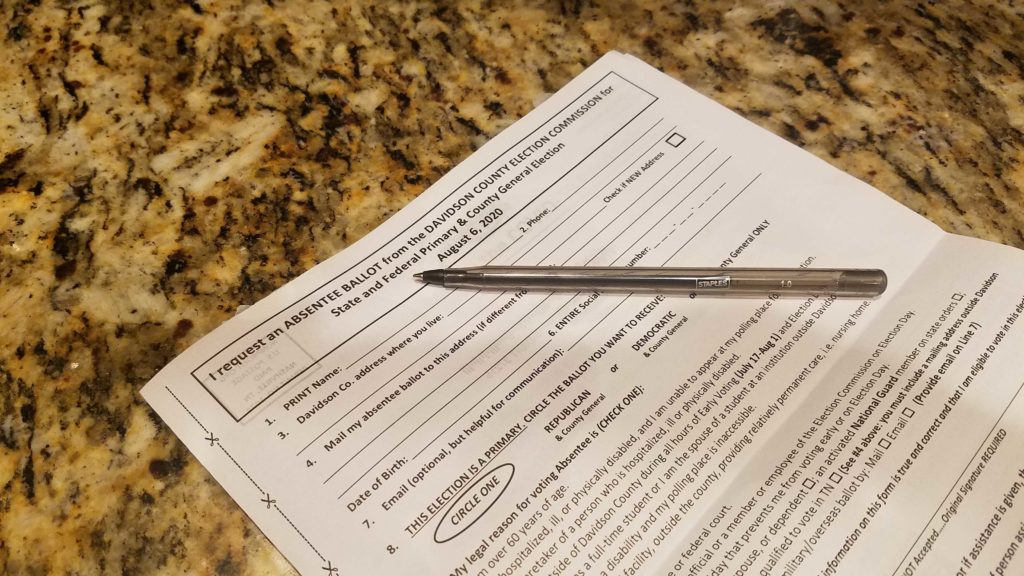
Tennessee must temporarily lift its requirement that voters give a reason to vote absentee, a Nashville judge has ruled, saying that the coronavirus pandemic should not force people to choose between exercising their rights and safeguarding their health.
Chancellor Ellen Hobbs Lyle says the state’s insistence on enforcing the excuse requirement is unconstitutional in light of the pandemic. Last night, she issued a temporary injunction barring state election officials from enforcing the requirement, opening the door for any voter to apply for an absentee ballot.
“The state’s position is unapologetic,” Hobbs writes. “It claims that unlike the can-do approach of two-thirds of the U.S. states who have for years allowed any voter to vote by mail and eleven more states that have relaxed voting by mail restrictions for the 2020 elections due to the pandemic, it is impossible for the State of Tennessee, in a state of emergency, to expand access to voting by mail on a temporary basis.”
Tennessee generally requires voters to appear in person, unless they’re over 60 years old. People who are seriously ill, disabled or out of state during the election are allowed to vote absentee. Candidates for office are also allowed to vote by mail.
The suit was brought by several plaintiffs who live with people who have health conditions that put them at heightened risk of COVID-19. All of the plaintiffs are too healthy to qualify for absentee ballots themselves.
Hobbs noted the state would be unable to require voters to wear masks at the polls, one of the most effective means of social distancing.
More: Read Chancellor Ellen Hobbs Lyle’s ruling here.
The American Civil Liberties Union, which took part in the suit, says the ruling will save thousands from being disenfranchised.
“During this health crisis, the ability to have a say in our government is more critical than ever,” Thomas H. Castelli, ACLU of Tennessee’s legal director, said a prepared statement. “This ruling makes it possible for voters to choose how to safely vote.”
But Tennessee Attorney General Herbert Slatery says Lyle did not take into account state election officials’ argument that expanding absentee voting is impractical. He says it could lead to voter confusion, potential fraud and election confusion.
“It is yet another court decision replacing legislation passed by the people’s elected officials with its own judgment, largely ignoring the practicalities of implementing such a decision, and doing so in the midst of a pandemic and budget crisis,” Slatery said in a prepared statement.
Slatery did not say whether the state plans to appeal.

